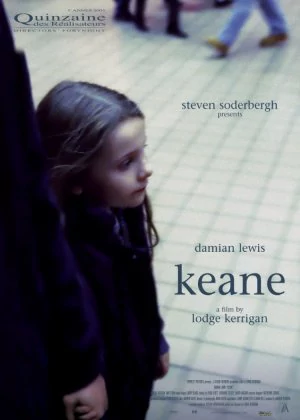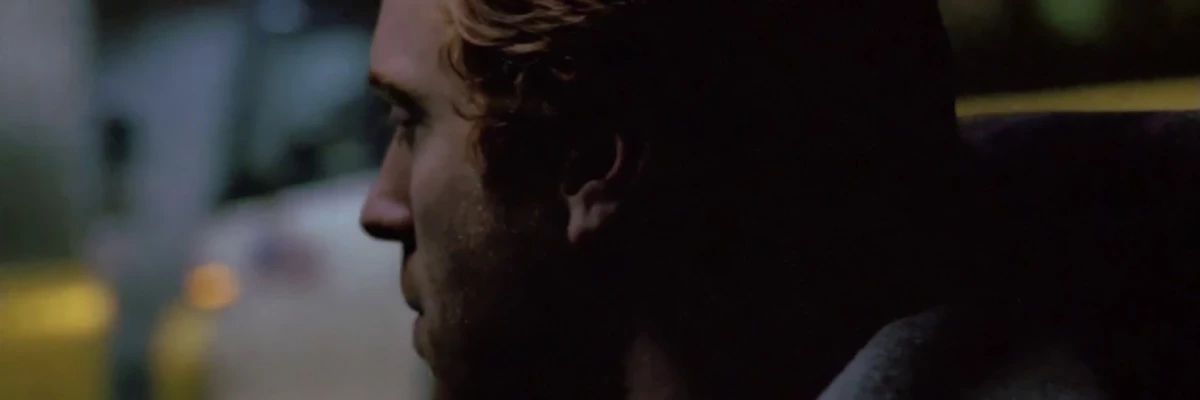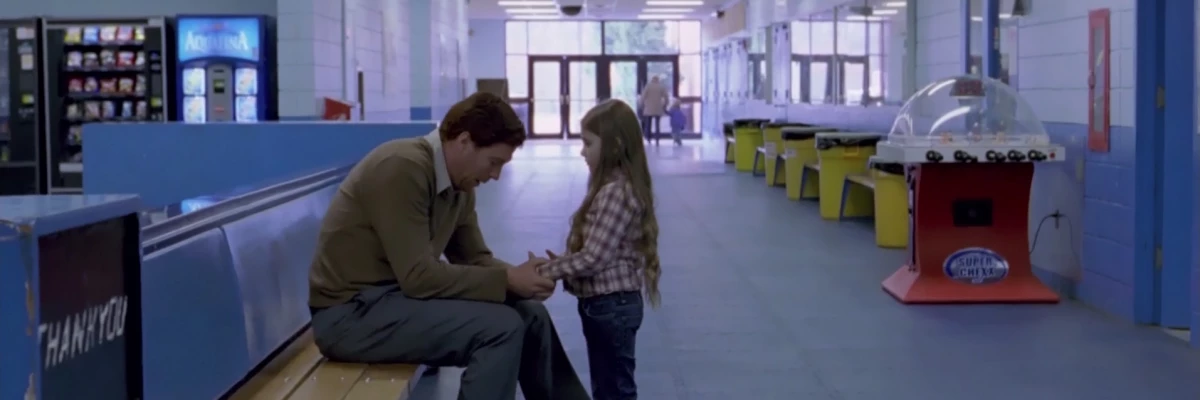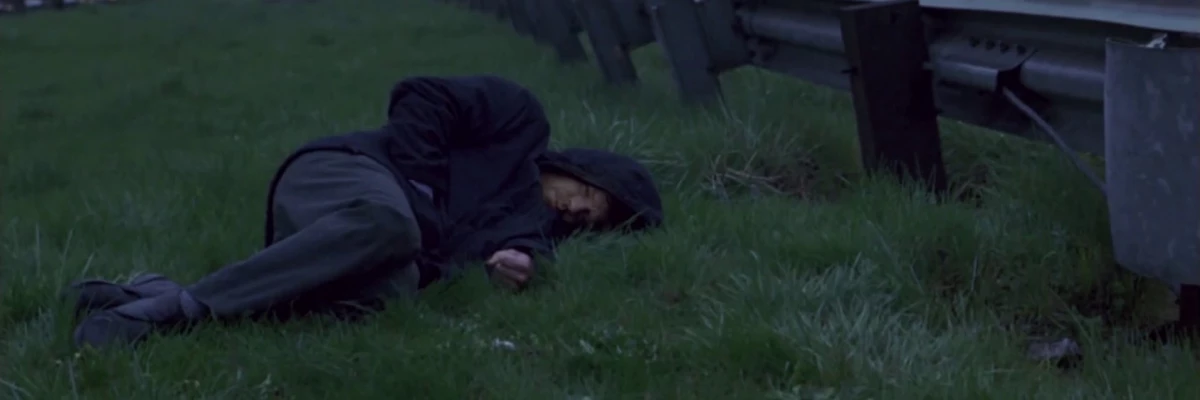Keane

When I first watched Lodge Kerrigan's Keane, I went in with pretty low expectations. It's not the kind of film that adequately matches my preferences, but some buzz coming from the right crowd pushed me to seek it out anyway. It was a real discovery, the kind of film that ticks all the wrong boxes, but still knocked me off my feet. That was years ago though, so it wasn't that surprising that I felt a little hesitant revisiting the film. I was unsure of how 20 years of additional cinephile training would impact the experience. Lucky for me, Keane managed to win me over once again.

It's not so much that I love Kerrigan's style. Clean Shaven, his first film, was a pretty big miss, and I never really felt the need to explore the rest of his oeuvre. His films seem to be part of a rather grimy, indie drama niche that deals with characters living on the fringes of society. Cinematography and broader styling are usually secondary to the tragedy and the dreary social circumstances these characters are facing. I bump into these films from time to time and while not all are bad, they never come close to being personal favorites. There are exceptions to every rule though, and Keane is that film for me.
What makes Keane so different for me is that even though it's very much a character-first film, it's still an extremely visceral experience. While the film looks pretty bleak and unsexy, the feverish editing and a camera that virtually sticks to the lead character make it an extremely nervous and intense affair that puts you right in the man's shoes. It's an incredibly effective approach, one that may put you off if you like more quieter, or more introspective films. It's exactly what I'm looking for in a film though, even if the means to accomplish it are usually quite different from what you're getting here.
William Keane is a distressed man, looking for his daughter. She was kidnapped at a local bus station a couple of months before and William can't shake off the overwhelming guilt. Nobody is able to help him, so he wanders around, endlessly replaying the events in his mind, hoping to pick up new clues. His life changes when he meets Lynn and her daughter Kira, who are staying at the same hotel. They are short on cash and William decides to help them out. Lynn is hoping to patch things up with her husband and asks William if he can take care of Kira for a short while.

Visually there are two very different ways to approach the film. Keane is one of those early DV projects, and it certainly looks the part. Dreary colors, grainy texture, and bland lighting make for a very unattractive look. The stills here are the best I could muster, but still, they do very little for me. The US of DV did allow Kerrigan to get as close as possible to his protagonist, tailing him at all times, creating a more intense and intimate experience. It may not be visually appealing, but it's definitely functional and it adds to the overall quality, which is what matters in the end.
The sound is in line with the cinematography, though I have to say I don't even remember there being any actual music. Kerrigan uses environmental sounds to create soundscapes that fit the mood. The nervous editing is a real ally here, as it gives Kerrigan an excuse to add texture and volume to the sound. It's not a novel technique, but once again it is the execution and the effectiveness that sets it apart from many others. Combined with the visuals it makes for an incredibly dense, almost oppressive watch that places you right next to the main character.
All of this would be moot if Keane would be some insufferable jerk, and going by some of his character traits that was a real possibility. Luckily, Damien Lewis is absolutely stellar as William Keane, this being no doubt one of his most definitive performances. Even though the film is quite visceral, he still manages to insert a lot of nuance into his performance, especially whenever he's battling his inner demons. A film like this needs a standout lead, and Lewis delivers. The rest of the (small) cast is solid too, with strong performances by Breslin and Ryan, but they aren't the main attraction.

The first half hour is by far the most intense portion of the film, so if you feel it's all a bit much, know that the film does settle down somewhat after that. It will build up to a rather emotional finale, which is both subtle and grueling at the same time. There is also an alternative (and shorter) cut available, by no other than Steven Soderbergh (producer of this film) and approved by Kerrigan himself, though I haven't seen that one yet. It is supposed to be a pretty different experience, it's just that I was more interested in reliving Kerrigan's original vision.
Keane is one of those films that, at least on paper, wouldn't immediately appeal to me. There's a strong focus on a marginalized lead character, the presentation is dreary and the drama weighs you down. But thanks to Damien Lewis' stellar performance, a very visceral style of direction, and a sublime finale the film hits like a sledgehammer, which I can only applaud. I guess I should try out a couple more Kerrigan films, but even if I don't end up liking them half as much, this will always be a masterpiece and a good reminder that there are gems hidden in the most unlikely of places.